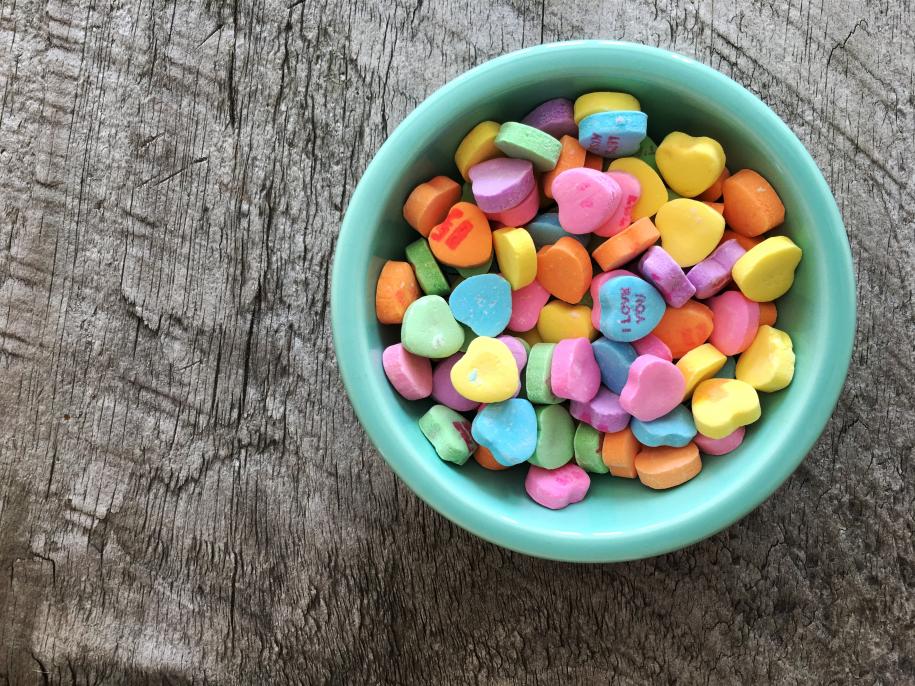
Breadcrumb
- Essential Partners
- Our Impact
- News and Notes
- The Science of Healthy Relationships
The Science of Healthy Relationships

You want to know how to really manage conflict? Ask anyone who’s been in a long-term marriage or partnership. I've always been intrigued that people who experienced our dialogue method were so quick to mention its application to their personal lives. After all, so many of the principles of dialogue – listening, compassion, and curiosity about different perspectives, as well as willingness to acknowledge that your truth isn’t THE truth – are critical to most sustained relationships.
With Valentine’s Day upon us, we’re beset with images of highly idealized romantic love. Give the right gift and you can totally save that failing relationship! Better get her flowers or prepare for the silent treatment! Be happy, be infatuated, above all…be conflict-free! Personally, I get a little exhausted by it, and I know others do, too. Real relationships aren’t conflict-free, right? Or are mine just broken?
Enter John Gottman, a researcher who has dedicated his career to understanding what makes partnerships work. Specifically, “He wanted to see if there were indeed patterns of behavior, or sequences of interactions, that could discriminate happy from unhappy couples. It was not at all clear that these patterns existed.” Well, they exist all right…so much so that Gottman and his research lab at the University of Washington claim a 94% accuracy rate of predicting which marriages will end in divorce. So…happy Valentine’s Day! To balance out the saccharine overload of February 14th, I thought I’d share some key findings from Gottman that offer a more nuanced, forgiving message about what characterizes healthy communication and healthy relationships.
1. You might not resolve that fight.
Dr. Gottman found that most conflicts in relationships aren’t resolved. Instead, 70% of marital conflicts are perpetual. There are inherent tensions in so much of life and relationships. So let’s face the facts that the tough issues with our loved ones won’t go away…so we might as well find more constructive ways of addressing them. This is one of the reasons that we don’t frame the work of dialogue as resolving an issue, but rather restoring a channel of meaningful communication around something that even a slight mention of can derail an entire evening. The goal is to understand where your partner is coming from, not to finally figure out that one thorny problem that drives you both crazy.
2. Keeping cool during conflict doesn’t mean you “win.”
I know; it sounds like blasphemy from an organization that carefully designs conversational guardrails to avoid disruptions like emotional outbursts or constant interruption. But Gottman’s research indicates that conflicts between couples most likely to divorce are actually characterized by something far more insidious than emotion: a lack thereof. Emotional withdrawal is one of the most significant predictors of a failed relationship. The bottom line here is that even amidst conflict, expressions of emotion can actually be healthy – the key is to channel them in such a way as to not derail the entire conversation.
3. Relationships run on resiliency.
One of Gottman’s key findings as that regardless of how much they argued, successful relationships were characterized by an ability to rebound from conflict to a positive conversation, creating a shared foundation of “emotional regulation.” How do you rebound? Well, Gottman advocates for some of the same structures that we employ in heated dialogue sessions among polarized groups: namely, take a break. When those bursts of emotion mentioned earlier break through and we enter “fight or flight” physiological response, the best thing to do is to advocate for a pause in the conversation. None of this is rocket science, but it’s easy to fall into the Valentine’s Day trap of thinking that what isn’t red, shiny and covered in chocolate is broken. The reality is that relationships are in constant states of growth, conflict, and repair. Conflict comes from a place of deep care, so the relationships that last aren’t conflict-free; they’re conflict-aware. Fights happen, and should. Resolution isn’t the goal…resiliency is.
But what does this Gottman guy know, anyway? I asked some of our staff what principles of dialogue they’ve found most useful in their partnerships, and as always, they didn’t disappoint:
- Resist (when possible) the urge to defend or explain; instead, responding with acknowledgment and curiosity.
- Assume good intention! Also, talking about big issues is easier when you focus on why you each think the way you do when you think differently about something.
- Make tea for each other - hospitality and physical warmth make a difference.
- "We see the world not as it is, but as we are" - remember to ask what is behind the world view, for self or others, and how we really are.
What have you found most applicable from dialogue in your personal relationships? Leave a comment and let us know. And of course, Happy Valentine's Day from all of us at Essential Partners.